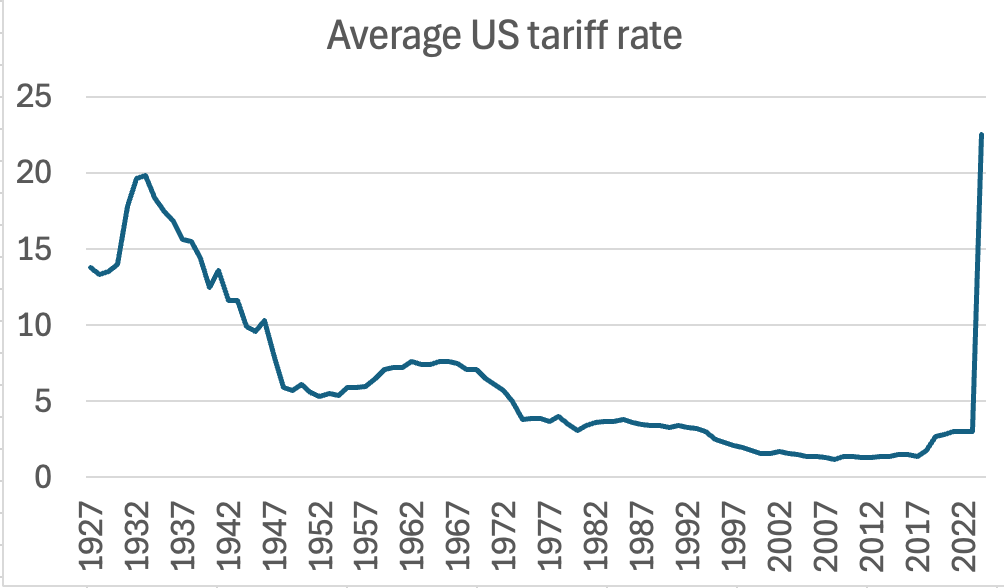Geopolitical Suicide and Economic Self-Immolation: Two Great Tastes that Taste Great Together

The Trump White House remains a case study in competent, careful decision making.
In the final run-up to President Trump’s “Liberation Day” tariff announcement, aides were left with a difficult task.
They were struggling to square the president’s seemingly contradictory goals for sweeping new duties. He wanted them to raise significant revenue for the government, as well as provide a durable signal for companies to invest in the U.S., according to people with knowledge of the discussions. Those goals would align with a permanent, across-the-board tariff. A universal approach would also help prevent companies from avoiding tariffs by shifting production to other countries—a key issue for Trump’s economic team.
But the president also liked the idea of reciprocity, the people said—or charging nations “what they charge us,” as Trump has put it publicly. That pointed to individualized tariff rates for nations that could be calibrated according to their tariffs and other economic policies.
A senior administration official described a “ping pong match” between universal tariffs or the reciprocal approach.
You could always not square that circle. But given Trump’s constitutive incoherence and continued disagreement among his chief advisors, the White House decided, “fuck it.”
Except in the next scene, metaphorically speaking, the crowd throws the kid off a cliff.
As Rob posted about the other day:
Anyway, Jonathan Last is one-hundred percent correct that it’s “game over, man.” I assume I’ll get around to writing something similar… eventually.
Understand this: There is no going back.
If, tomorrow, Donald Trump revoked his entire regime of tariffs, it would not matter. It might temporarily delay some economic pain, but the rest of the world now understands that it must move forward without America.
If, tomorrow, Donald Trump abandoned his quest to annex Greenland and committed himself to the defense of Ukraine and the perpetuation of NATO, it would not matter. The free world now understands that its long-term security plans must be made with the understanding that America is a potential adversary, not an ally.
This realization may be painful for Americans. But we should know that the rest of the world understands us more clearly than we understand ourselves.
Vladimir Putin bet his life that American voters would be weak and decadent enough to return Donald Trump to the presidency. He was right.
Europeans are moving ahead with their own security plans because they realize, as a French minister put it, “We cannot leave the security of Europe in the hands of voters in Wisconsin every four years.” He was right.
The Canadian prime minister declared the age of American leadership over. He was right.
Instead of arguing with this reality, or denying it, we should face it.It’s bad enough being a failing empire. Let’s not also be a delusional failing empire. Let’s at least have some dignity about our situation.



